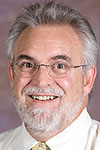Whatchamacolumn: Reinvigorate what made KOB a success
Two recent headlines captured community attention and helped stimulate private/public discussions.
“Next year could be last for after-school program.” That March 29 news story provided some history of McMinnville’s locally generated, highly successful Kids on the Block program, and described financial challenges that have evolved since KOB was outsourced to the regional Camp Fire Columbia organization.
Next: “After-school program needs a new team of champions.” Last week’s N-R editorial dove deeper into the community ingredients of KOB’s success, and issued a different kind of challenge: “It’s time for today’s leaders to rise to today’s challenge in like fashion. This is not a program we can afford to let lapse.”
That combination of news and commentary could use more observations – not just here, but among citizens and leaders throughout the community.
Consider the financial differences between then and now:
Ten years ago, KOB provided after-school programs Monday through Friday from 2:30 to 5:30 p.m. at a cost to families of less than $1.20 per hour. That’s less than $18 per week; less than $80 per month. Students approved for the federal free and reduced lunch program were eligible for a 40 percent discount.
Today, with programs extended 30 minutes to 6 p.m., the comparable monthly cost per student is $420. Families can reduce costs by signing up for four days ($383), three days ($323), two days ($263) or even just one day per week ($208). The one-day plan costs almost $14 per hour.
Replacing the simple financial aid system, families can access discounts “ranging from 5% to 100% off the fees, depending on household size, income and special circumstances.” Camp Fire’s “Collective Care” philosophy asks people with more means to donate to the program, and asks others to “tell us what you can afford” for a trust-based plan without need to prove income.
McMinnville’s challenge is two-fold: Officials have proclaimed that unless after-school programming is provided to every eligible student, it will be abandoned altogether; so, the community needs to raise whatever money is required to pay the increased costs of a Portland-based program.
At this point, I’ll risk being accused of “good-ol’-days” syndrome by suggesting that McMinnville, like so many communities, has changed in difficult-to-describe ways. Historically, ways of meeting needs more easily could rise up from a cohesive citizenry; today, due to all manner of personal, social, cultural, political and bureaucratic complexities, solutions tend to trickle down.
Like I said, difficult to describe.
Here’s something easier to describe: The community needs to reinvigorate what made KOB what it was.
Jeb Bladine can be reached at jbladine@newsregister.com or 503-687-1223.










Comments